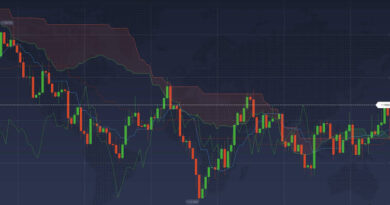The Ultimate Guide to Demat Accounts in India
A demat account, also known as a dematerialized account, is an electronic account that allows investors to hold and trade securities in a digital format. In India, demat accounts are necessary for anyone who wishes to trade in the stock market. This guide will provide you with all the information you need to know about demat accounts in the country, including the best demat account in India.
Opening a Demat Account
To open a demat account in India, you must first choose a Depository Participant (DP) who will act as an intermediary between you and the depository. There are two depositories in India – the National Securities Depository Limited (NSDL) and the Central Depository Services Limited (CDSL). Once you have chosen a DP, you will need to fill out an account opening form. You will need to submit your identity and address proof documents and pay the account opening fees. Check the best demat account in India to open an account.
Types of Demat Accounts
There are two types of demat accounts in India – regular demat accounts and basic services demat accounts (BSDA). Regular demat accounts have no limit on the number of securities held in them, while BSDA accounts are designed for small investors and have a maximum limit of Rs. 2 lakhs worth of securities.
Charges
There are various charges associated with a demat account in India. The account opening fee, annual maintenance fee, transaction charges, and other charges may apply. The charges vary depending on the DP you choose and the type of account you have. It is important to review the charges before opening a demat account while considering the best demat account in India.
Benefits
There are many benefits to having a demat account in India. Here are a few:
Safe and secure: Demat accounts eliminate the risk of theft, loss, or damage to physical securities as they are held in electronic format.
Easy to use: Trading in the stock market becomes very convenient with a demat account. Transactions can be done online, and the account can be accessed from any location, so considered the best demat account in India.
No stamp duty: When securities are transferred through a demat account, there is no need to pay stamp duty as opposed to physical securities.
Corporate benefits: Shareholders receive benefits such as dividend payments, bonus issues, and rights issues directly into their demat accounts.
Loan against securities: Investors can borrow against securities held in their demat accounts.
Conclusion
In India, demat accounts are essential for investors who wish to trade in the stock market. They provide a secure and convenient way to hold and trade securities in an electronic format. It is important to choose a reliable DP and review the charges associated with the account before opening a demat account. With the benefits of easy trading, safe and secure storage of securities, and corporate benefits, demat accounts are a must-have for investors in India. So, consider the best demat account in India.




